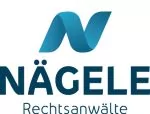As of now, electronic documents and signatures are legally binding for almost all business and personal transactions throughout the EU.
The "eIDAS – regulation", known as the Electronic Identification and Trust Services regulation, (EU) No. 910/2014 of the European Parliament and Council of July 2014, concerning electronic identification and trusted services for electronic transactions in the internal market, ultimately serves to repeal Directive 1999/93/EC (OJ L 257, 28.8.2014, p. 73), creating standards and a respective framework for the cross-border use of electronic documents and signatures within the 27 member States of the European Union and the European Economic Area (EEA).
Ultimately, the "qualified electronic signature," (defined in the Ordinance under Art.25 P. 2) has the same legal effect as a handwritten signature.
In Liechtenstein, the "qualified electronic signature" represents now the recognized legal standard. By law, respectively the Signature and Trust Services Act (SVG), the qualified electronic signature has the same legal effect as a handwritten signature. Thus, with a qualified electronic signature, a document can be electronically signed as an alternative to a handwritten signature.
The electronic-signature-services of some service providers (so called "qualified trust service providers,") such as DocuSign, meet the technical requirements for the qualified electronic signature in the sense of the new regulation. But despite that fact these weren't considered "secure electronic signatures" within the meaning of the Liechtenstein Signature Law, which has meanwhile been repealed.
When the Signature and Trust Services Act came into force in July 2019, it replaced the previous Signature Act and implemented the eIDAS Regulation into Liechtenstein law. Thus, the uniform European-wide framework conditions for the cross-border use of electronic means of identification and trust services now also apply in Liechtenstein. The law now makes it possible to use eIDAS compliant, qualified electronic signature procedures, such as DocuSign in Liechtenstein and in cross-border business transactions with the legal effect of a handwritten signature.
The content of this article is intended to provide a general guide to the subject matter. Specialist advice should be sought about your specific circumstances.


